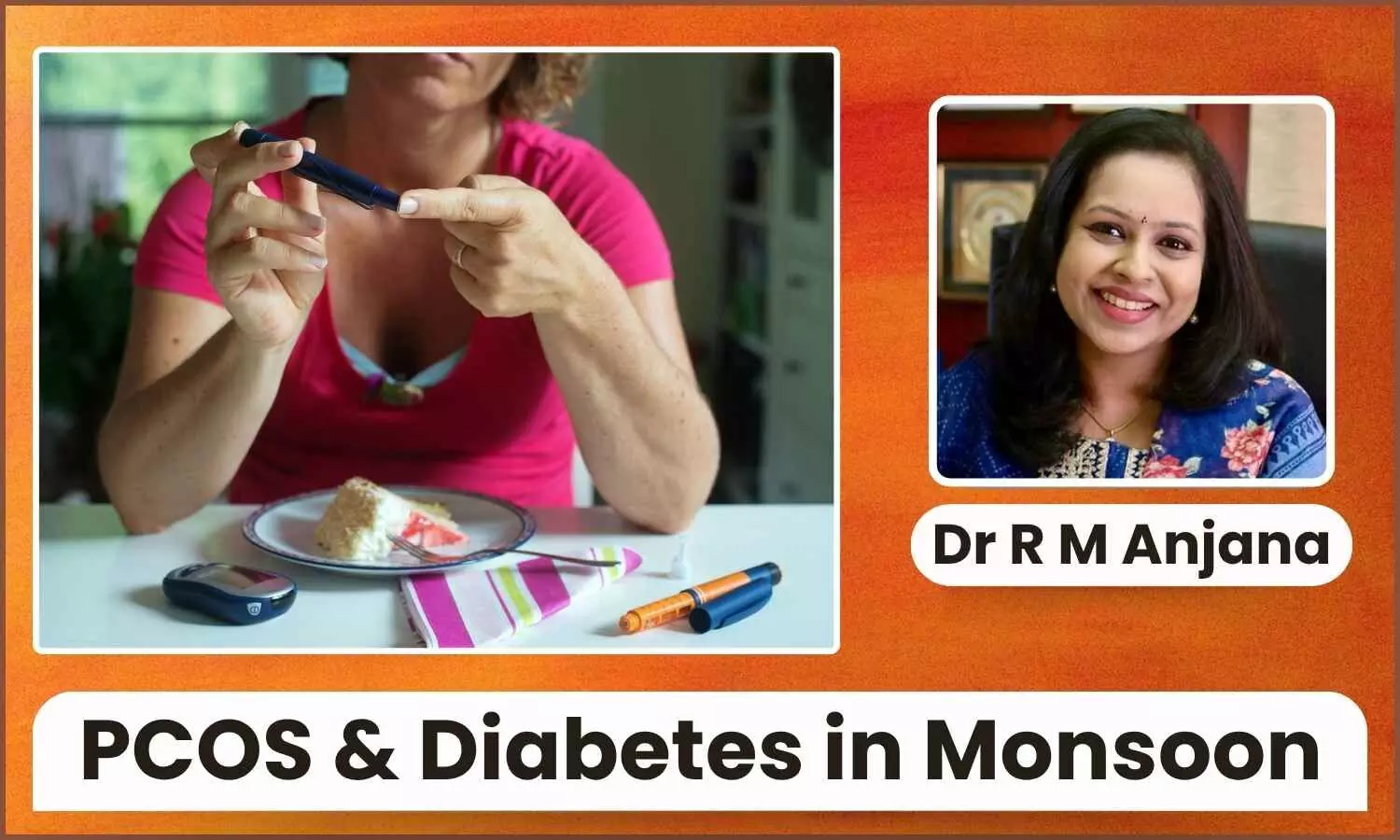How PCOS, Diabetes, and Monsoon Weather Create a Perfect Storm for Women's Health - Dr R M Anjana

Introduction
For many women, managing Polycystic Ovary Syndrome (PCOS) and diabetes is already a delicate balancing act. But add the unpredictable conditions of the monsoon season, and it becomes a perfect storm affecting both physical and emotional well-being.
From disrupted hormone levels and blood sugar fluctuations to skin infections and mood swings, monsoon weather can magnify existing health issues. Here’s how PCOS, diabetes, and rainy-season challenges interact and what women can do to stay healthy.
1. The Hormonal Imbalance Worsens in Humid Conditions
Women with PCOS already struggle with hormonal imbalance, irregular periods, and insulin resistance. During the monsoon, high humidity and temperature changes can cause fatigue, stress and poor sleep, all of which contribute to worsening hormonal symptoms.
The levels of cortisol, the body’s stress hormone, may rise due to erratic weather patterns and low sunlight exposure, which can in turn increase insulin resistance. This makes it harder to manage both PCOS and diabetes, leading to increased sugar cravings, mood swings and weight gain.
2. Blood Sugar Fluctuations Become Harder to Control
People with diabetes need to monitor their blood glucose levels closely. However, during the monsoon:
- Reduced physical activity due to rain can increase insulin resistance
- The craving for comfort foods like fried snacks, pakoras and sweets can cause sugar spikes
- Infections are more common, which can further increase blood sugar levels
For women managing both PCOS and diabetes, this season poses a serious risk of poor metabolic control. It is vital to maintain a structured meal plan and remain physically active (indoors, when necessary).
3. Risk of Infections Rises Sharply
Women are more prone to skin, urinary tract and fungal infections during the monsoon due to damp clothes, unclean washrooms, and poor air circulation.
- Candida infections thrive in warm, moist environments, and are more common in women with high blood sugar levels
- PCOS can also lower immunity due to hormonal imbalances, making infections harder to fight
- Wet shoes and clothes increase the risk of athlete’s foot and skin rashes
It is important to wear dry, breathable cotton clothes, change out of wet garments immediately, and maintain personal hygiene.
4. Emotional Health Takes a Hit
Mood changes are common in both PCOS and diabetes due to hormonal shifts. But cloudy skies and reduced sunlight can worsen seasonal affective disorder (SAD) or low moods. Many women feel more sluggish, unmotivated or anxious during the monsoon.
PCOS and diabetes both increase the risk of depression and anxiety, which makes it important to focus on mental health, seek sunlight exposure when possible and engage in indoor physical activities like yoga or dancing.
Tips for Managing PCOS and Diabetes During Monsoon
- Stick to a balanced diet rich in fibre, whole grains and protein. Avoid oily and sugary comfort foods.
- Exercise indoors: Try yoga, pranayama or dance workouts at home.
- Monitor your blood sugar more frequently. Rainy-season illnesses or stress can cause spikes.
- Take care of your skin and hygiene: Use anti-fungal powder, wear loose clothes, and stay dry.
- Manage stress and sleep well: Practice meditation and maintain a regular sleep schedule.
Conclusion
The monsoon may bring relief from the summer heat, but for women living with PCOS and diabetes, it also introduces new challenges.
By understanding how weather affects your body and taking proactive steps in diet, hygiene, mental health and routine, you can ride through the rainy season with better control and greater confidence.


